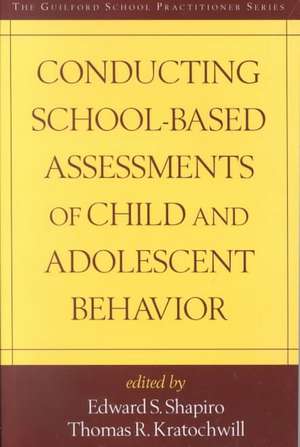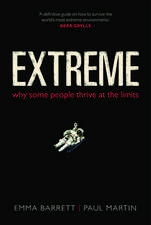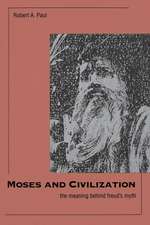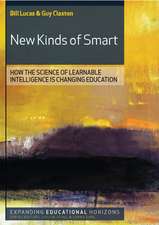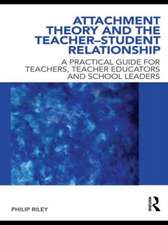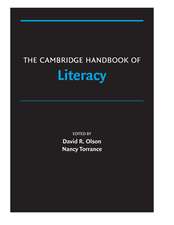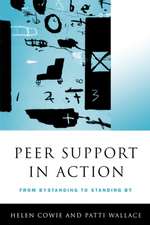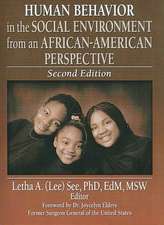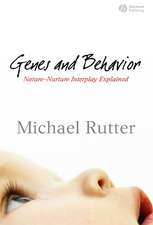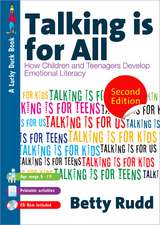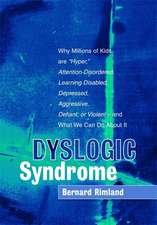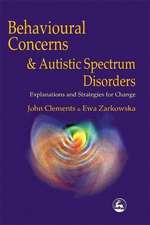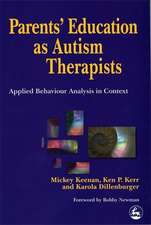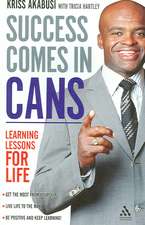Conducting School-Based Assessments of Child and Adolescent Behavior, First Edition: The Guilford School Practitioner Series
Editat de Edward S. Shapiro, Thomas R. Kratochwillen Limba Engleză Paperback – 26 sep 2002
This hands-on guide is designed to help school practitioners conduct effective multidimensional assessments of a wide range of emotional and behavioral difficulties. Each chapter focuses on a particular method, describes its applications in the school setting, and offers clear guidelines for implementation, illustrated with realistic case examples. Approaches discussed include direct observation, analogue assessment, child self-reports, teacher and parent interviewing, informant reports, and self-monitoring procedures. Recommendations for working with culturally and linguistically diverse children and adolescents are also provided.
| Toate formatele și edițiile | Preț | Express |
|---|---|---|
| Paperback (1) | 339.95 lei 6-8 săpt. | |
| Guilford Publications – 26 sep 2002 | 339.95 lei 6-8 săpt. | |
| Hardback (1) | 473.09 lei 6-8 săpt. | |
| Guilford Publications – 20 iul 2000 | 473.09 lei 6-8 săpt. |
Preț: 339.95 lei
Nou
Puncte Express: 510
Preț estimativ în valută:
65.06€ • 67.74$ • 54.98£
65.06€ • 67.74$ • 54.98£
Carte tipărită la comandă
Livrare economică 10-24 martie
Preluare comenzi: 021 569.72.76
Specificații
ISBN-13: 9781572308220
ISBN-10: 1572308222
Pagini: 318
Dimensiuni: 152 x 229 x 22 mm
Greutate: 0.45 kg
Ediția:1
Editura: Guilford Publications
Colecția Guilford Press
Seria The Guilford School Practitioner Series
ISBN-10: 1572308222
Pagini: 318
Dimensiuni: 152 x 229 x 22 mm
Greutate: 0.45 kg
Ediția:1
Editura: Guilford Publications
Colecția Guilford Press
Seria The Guilford School Practitioner Series
Public țintă
Professional, Professional Practice & Development, and UndergraduateCuprins
1. Introduction: Conducting a Multidimensional Behavioral Assessment
Edward S. Shapiro and Thomas R. Kratochwill
2. Naturalistic Direct Observation in Educational Settings
Christopher H. Skinner, Katrina N. Rhymer, and E. Constance McDaniel
3. Analogue Assessment: Emotional/Behavioral Problems
John M. Hintze, Gary Stoner, and Mary H. Bull
4. Functional Analysis
Jennifer J. McComas, Hannah Hoch, and F. Charles Mace
5. Self-Monitoring
Christine L. Cole, Tamara Marder, and Lori McCann
6. Self-Report: Rating Scale Measures
Tanya L. Eckert, Erin K. Dunn, Robin S. Codding, and Katie M. Guiney
7. Self-Report: Child Clinical Interviews
Stephanie H. McConaughy
8. Informant Report: Rating Scale Measures
Kenneth W. Merrell
9. Informant Report: Parent and Teacher Interviews
R. T. Busse and Barbara Rybski Beaver
10. Cultural and Linguistic Issues
Elisa M. Castillo, Stephen M. Quintana, and Manuel X. Zamarripa
Edward S. Shapiro and Thomas R. Kratochwill
2. Naturalistic Direct Observation in Educational Settings
Christopher H. Skinner, Katrina N. Rhymer, and E. Constance McDaniel
3. Analogue Assessment: Emotional/Behavioral Problems
John M. Hintze, Gary Stoner, and Mary H. Bull
4. Functional Analysis
Jennifer J. McComas, Hannah Hoch, and F. Charles Mace
5. Self-Monitoring
Christine L. Cole, Tamara Marder, and Lori McCann
6. Self-Report: Rating Scale Measures
Tanya L. Eckert, Erin K. Dunn, Robin S. Codding, and Katie M. Guiney
7. Self-Report: Child Clinical Interviews
Stephanie H. McConaughy
8. Informant Report: Rating Scale Measures
Kenneth W. Merrell
9. Informant Report: Parent and Teacher Interviews
R. T. Busse and Barbara Rybski Beaver
10. Cultural and Linguistic Issues
Elisa M. Castillo, Stephen M. Quintana, and Manuel X. Zamarripa
Notă biografică
Edward S. Shapiro, PhD, is Professor of School Psychology and Chairperson of the Department of Education and Human Services at Lehigh University. The former editor of School Psychology Review, he is the author or coauthor of several books, including Academic Skills Problems, Second Edition; Academic Skills Problems Workbook; and Behavior Change in the Classroom. Currently, Dr. Shapiro is codirecting a project focused on training doctoral school psychologists as Pediatric School Psychologists. This model attempts to train students to integrate children's health care, psychological, and educational needs within school settings.
Thomas R. Kratochwill, PhD, is Director of the School Psychology Program and Psychoeducational Clinic at the University of Wisconsin-Madison. Dr. Kratochwill has been associate editor of Behavior Therapy, the Journal of Applied Behavior Analysis, and School Psychology Review, and was selected as the founding editor of the APA Division 16 journal, Professional School Psychology (now School Psychology Quarterly). He is president of the Society for the Study of School Psychology and coauthor of the Task Force on Empirically Supported Interventions in School Psychology. Dr. Kratochwill has written or edited 23 books and made more than 100 presentations at professional meetings.
Thomas R. Kratochwill, PhD, is Director of the School Psychology Program and Psychoeducational Clinic at the University of Wisconsin-Madison. Dr. Kratochwill has been associate editor of Behavior Therapy, the Journal of Applied Behavior Analysis, and School Psychology Review, and was selected as the founding editor of the APA Division 16 journal, Professional School Psychology (now School Psychology Quarterly). He is president of the Society for the Study of School Psychology and coauthor of the Task Force on Empirically Supported Interventions in School Psychology. Dr. Kratochwill has written or edited 23 books and made more than 100 presentations at professional meetings.
Recenzii
This volume's strengths include the rich case material, numerous tables that serve as guidelines for approaching multidimensional assessment, and specific examples of actual tests, questionnaires, and behavioral observation strategies. The chapters are clearly written, interesting, and provocative. Moreover, they challenge us to recognize and use 'best practices' in our day-to-day work settings. The book presents a 'how to' approach that will be welcomed by many practitioners. --Thomas H. Ollendick, PhD, Department of Psychology, Virginia Tech
This book provides comprehensive coverage of contemporary behavioral assessment concepts and methods for persons working in the schools. Especially appealing is the book's clear organization, based on the conceptual framework delineated in the initial chapter. The use of the
'directness continuum' to order the chapters is a logically compelling and pedagogically useful strategy. Offering an up-to-date treatment of the field, the book's coverage includes functional analysis as well as issues related to assessing ethnic and linguistic minority children. It is consistently practical, including many case examples and samples of useful instruments and forms. --John D. Cone, PhD, Department of Psychology, United States International University, San Diego, CA
This book provides a much-needed update on conducting school-based assessments, especially in light of recent advances in functional assessment. The chapters will help practitioners tackle school-based referrals in all of their complexity. Clear and up-to-date information is presented on the complete range of necessary measures, integrated into a sound conceptualization of the multifaceted task of assessment. The book even includes a chapter on cultural and linguistic issues. Appropriate for school psychologists and anyone making decisions about children in schools, this book should find its way into all school psychology graduate training curricula. --Edward Daly, PhD, Department of Psychology, Western Michigan University
-This book provides comprehensive coverage of contemporary behavioral assessment concepts and methods for persons working in the schools. Especially appealing is the book's clear organization, based on the conceptual framework delineated in the initial chapter. The use of the
'directness continuum' to order the chapters is a logically compelling and pedagogically useful strategy. Offering an up-to-date treatment of the field, the book's coverage includes functional analysis as well as issues related to assessing ethnic and linguistic minority children. It is consistently practical, including many case examples and samples of useful instruments and forms. --John D. Cone, PhD, Department of Psychology, United States International University, San Diego, CA
This book provides a much-needed update on conducting school-based assessments, especially in light of recent advances in functional assessment. The chapters will help practitioners tackle school-based referrals in all of their complexity. Clear and up-to-date information is presented on the complete range of necessary measures, integrated into a sound conceptualization of the multifaceted task of assessment. The book even includes a chapter on cultural and linguistic issues. Appropriate for school psychologists and anyone making decisions about children in schools, this book should find its way into all school psychology graduate training curricula. --Edward Daly, PhD, Department of Psychology, Western Michigan University
This text will be a valuable resource for both support personnel in the schools and private practitioners in conducting valid behavioral assessments as part of a problem-solving process in which identified target behavior is linked to mode of intervention. It provides a response to the ongoing needs of professionals seeking to improve service provision in this area.
--Readings, 7/27/2002ƒƒIf Shapiro and Kratochwill set out to create a useful, field-based, practitioner-oriented manualmission accomplished!...It is highly recommended that the matched pair [Conducting School-Based Assessments of Child and Adolescent Behavior and Behavioral Assessment in Schools, Second Edition] be considered for any behavioral assessment course offered at the graduate or even undergraduate level.
--Behavioral Interventions, 7/27/2002Descriere
This hands-on guide is designed to help school practitioners conduct effective multidimensional assessments of a wide range of emotional and behavioral difficulties. Each chapter focuses on a particular method, describes its applications in the school setting, and offers clear guidelines for implementation, illustrated with realistic case examples. Approaches discussed include direct observation, analogue assessment, child self-reports, teacher and parent interviewing, informant reports, and self-monitoring procedures. Recommendations for working with culturally and linguistically diverse children and adolescents are also provided.
The theoretical and empirical underpinnings of the assessment strategies demonstrated here are thoroughly reviewed in the companion volume, Behavioral Assessment in Schools, Second Edition: Theory, Research, and Clinical Foundations.
The theoretical and empirical underpinnings of the assessment strategies demonstrated here are thoroughly reviewed in the companion volume, Behavioral Assessment in Schools, Second Edition: Theory, Research, and Clinical Foundations.
